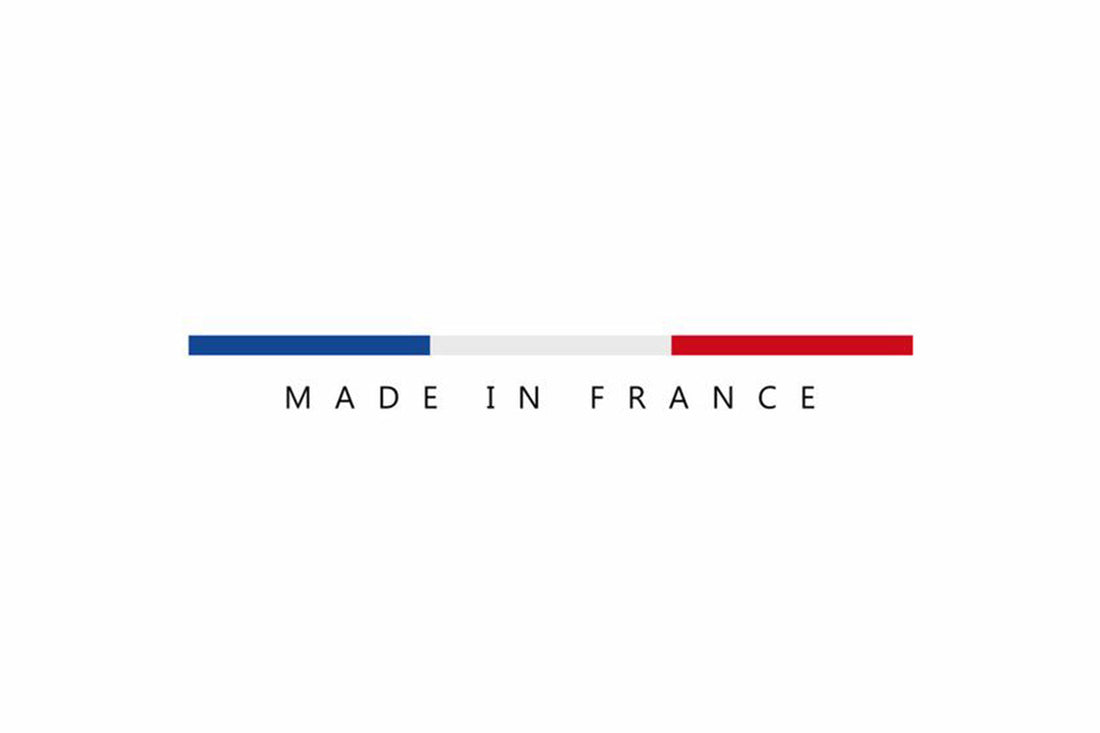
What does “Made in France” mean?
Share
Made in France: A Pillar of the Eco-responsible Fashion and Luxury Industry
In a country where fashion is not only an industry but also a way of life , "Made in France" goes far beyond the mere commercial aspect to become a true philosophy. It is a deliberate choice of quality, authenticity and commitment to ethical and sustainable manufacturing practices.
The term "Made in France" evokes a heritage of artisanal quality passed down from generation to generation. It continues to represent a high standard of quality and craftsmanship . Products made in France are renowned for their excellence, the result of meticulous craftsmanship and careful attention to detail. French brands strive to maintain this reputation by offering superior products, both in terms of the materials used and the finish.

The "Made in France" label emphasizes the importance of local and ethical production . Brands that choose to manufacture in France often commit to strict standards for working conditions, environmental compliance, and transparency throughout the supply chain. This often includes using sustainable and recycled materials and reducing carbon footprints through local production.
It also gives added value and prestige to a product. Consumers often associate this label with quality products, a certain art of living and a rich cultural heritage . As a result, French brands can often afford to set slightly higher prices for their products, due to this perception of quality and exclusivity but also due to higher production costs, a guarantee of the various commitments mentioned above.
The impact of "Made in France" on consumers
Current figures confirm the rise of the "Made in France" label in the fashion industry. Consumers are increasingly aware of the origin of the products they purchase and are favoring brands that embody values such as quality, sustainability, and social and environmental responsibility. French brands are gaining international visibility, which is helping to strengthen their position in the global fashion market, even surpassing that of major international brands.
Some key figures to remember from https://independant.io/

-
Since the impact of the Covid-19 crisis, 64% of French people say they have increased their purchases of products made in France .
-
65% of consumers are keen to buy from French online stores and marketplaces such as Fnac, Cdiscount and Rue du Commerce.
-
76% of French people buy Made in France products to express their support for local producers and to contribute to preserving employment in their region.
- 42% of French people choose to buy French products for reasons of respect for the environment .
- For 81% of French people, mentioning the origin of the product is a sign of trust .
- According to 86% of business leaders, industrial relocation within the national territory would positively improve the local economy .

- When they can, 47% of French companies favor local suppliers .
-
69% of managers say they have seen an increase in their turnover linked to Made in France
-
For 70% of French people, spending an average of €7.60 more on a t-shirt is perfectly feasible, if it is made in France.
-
French executives and retirees are currently the biggest consumers of “Made in France” .
In conclusion, “Made in France” represents much more than just an indication of where it was made. It is a symbol of excellence, authenticity, and commitment to responsible production practices . By choosing to highlight these values in your daily life, you are helping to shape a more sustainable and ethical future of fashion. Your commitment to quality, eco-responsibility, and authenticity is an inspiration for the entire fashion industry and, of course, Khiónê’s greatest source of inspiration.
